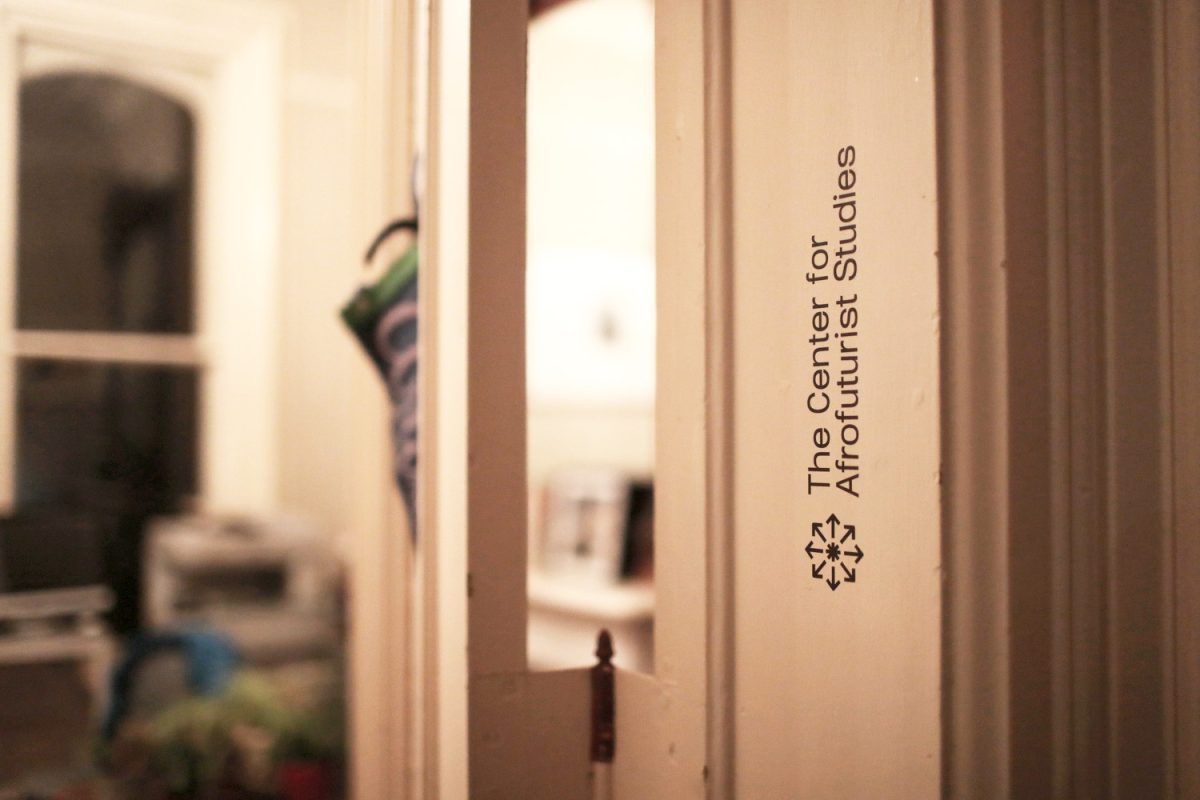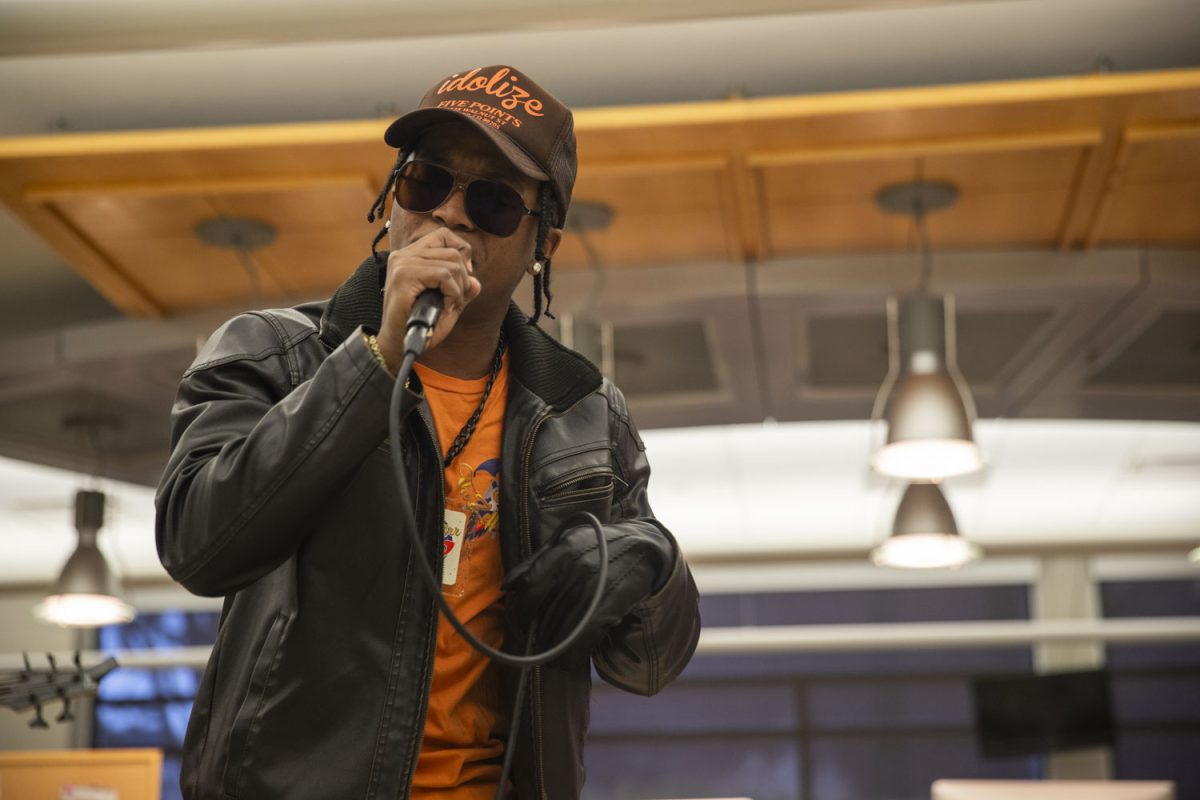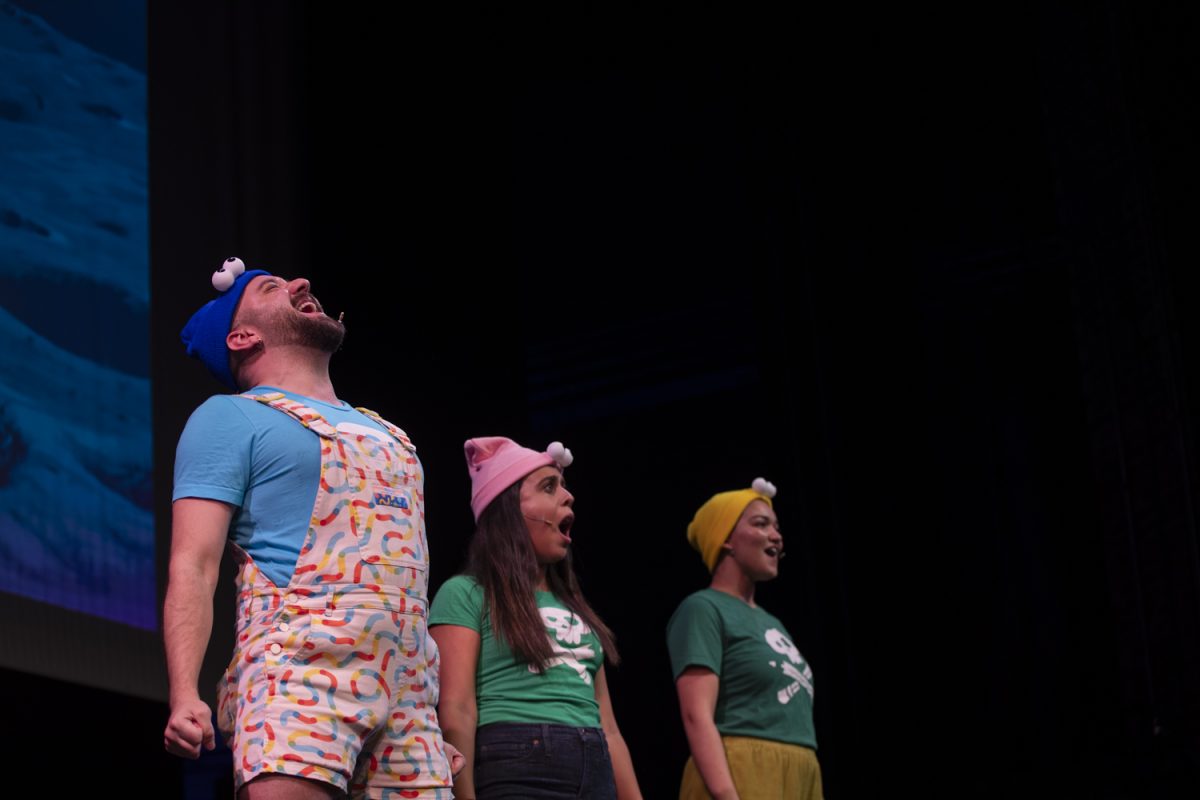Uche Anomnachi, a Ph.D. student in American studies at the University of Iowa and a fellow with the Center for Afrofuturist Studies, said people are always surprised to learn that the center is housed in Iowa.
Headquartered in Public Space One’s Close House in Iowa City, the CAS is a residency program that has provided a workspace for artists of color and seeks to interact with the futurity of marginalized groups through multidisciplinary art since 2016.
Though Afrofuturist centers exist in big metropolitan cities like New York City, Philadelphia and Boston, the Iowa City CAS is among the few of its kind in the Midwest, let alone the U.S.
“We think of Afrofuturism as a political movement,” Anomnachi said. “It’s an art movement as well, but the mission of the CAS is to envision an art practice that is based around Black futurity.”
On Friday, as part of its ongoing film festival, Ordinary Survival, the CAS hosted a screening of six short films by filmmakers across the world: Aryel René Jackson, Johanna Makabi, Akwi Nji, and Shakeen Ezron Williams.
RELATED: UI alum’s exhibit ‘Interconnectivity I’ displays PTSD visibility
“I see my films as time capsules,” Jackson said, whose screened films, “Shifting Stars” and “A Welcoming Place” not only encompassed their own experience as a Black person but the experiences of marginalized residents of Austin, Texas, and their attitudes toward the growing displacement of their communities within their city as well.
Jackson defined Afrofuturism as an art form that seeks to bring Black representation into the future and addresses the hurdles that the community currently faces with representation in the present.
“While a lot of conversations about [the future] surround climate change and environmentalism, they often leave out parts of the community in that conversation,” Jackson said. “I’m forcing that conversation to happen with my films.”
The process of curating the films screened at the multiple events within the festival, held until Nov. 12., began with an open call that saw upwards of 50 film submissions; of which, Anomnachi and his team chose 26.
The six films were screened back-to-back and were followed by a live, virtual panel of the filmmakers for an audience of less than 10, a turnout that Anomnachi hoped would be bigger.
“I can’t say that I’m not a little bit disappointed,” Anomnachi said. “It’s hard to find [an audience] when the theme is Black art and Black futurity in a place like Iowa.”
While festival passes for the event could be considered costly — a suggested donation of $125 with a minimum of $75 grants access to every film screened between Oct. 29 – Nov. 12, and a suggested donation of $20 for individual events like the one on Friday — the price isn’t uncharacteristic of similar film festivals; the sold-out, all-access pass for FilmScene’s recent Refocus Film Festival costed non-members $225.
Though disappointing, Anomnachi emphasized that the small turnout did not mean that the work was not worth presenting. Moreover, he felt that the intimate setting created a space that was ultimately beneficial for the filmmakers.
“The resonances that each filmmaker noted between their works really underscored the fact that we do this work for each other,” Anomnachi shared in a follow-up email to The Daily Iowan. “They were really the best audience we could hope to reach.”
On the panel, the filmmakers shared this sentiment when discussing their work in reference to one another.
“Being part of this type of festival is like being part of my tribe, my generation, my fellow artists,” Makabi, a Senegalese-Congolese filmmaker from Paris, France, who screened their films “Grâce” and “A Laundry Day,” said. “It’s really interesting to see how much our work resonates with each other and how we can have conversations stemming from that.”
The live virtual panel continued for about an hour, more than 30 minutes over their allotted time; for the filmmakers, there was no shortage of art to discuss.
While each film was very different in terms of its style and production, each one embodied their respective experiences as Black individuals using their art to establish and strengthen Black futurity.
“All around us, we see a general apathy towards art, especially Black art, that feels violent,” Anomnachi said. “Afrofuturism is the simple recognition that there will be Black people, Black art in the future.”












